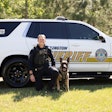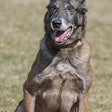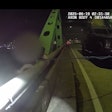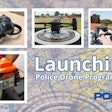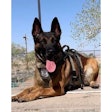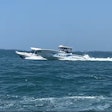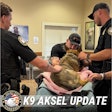From the air, one of the nation's premier schools for training law enforcement officers in drug investigations and counterterrorism looks for all the world like a summer camp. But no one is going to the Northeast Counterdrug Center to learn how to make a lanyard.
Nestled in the Blue Mountains of central Pennsylvania in an area that's been known as Indiantown Gap back to the days when Pennsylvania's northern Appalachian valleys were the nation's western frontier, the Northeast Counterdrug Center was established in 1998. The Center's mission is to provide no-cost counterdrug training and education to law enforcement and drug demand reduction specialists across the 18 northeastern United States spanning Maine to Virginia and west to Wisconsin.
A collaborative effort between the Pennsylvania and federal governments created the center. It is congressionally funded through the Department of Defense and is managed by the Pennsylvania National Guard Counterdrug Program. Technology assistance for the center was developed in conjunction with the U.S. Naval Air Warfare Center Training Systems Division (NAWCTSD) in Orlando, Fla.
In short, the Northeast Counterdrug Training Center is the fruit of an all-too uncommon alliance of state government (in this case, the Commonwealth of Pennsylvania), the Department of Defense, and the Pennsylvania National Guard. Law enforcement is accustomed to training that's conducted by a single agency or sponsor, but that's not the case here. The Northeast Counterdrug Training Center is a law enforcement educational organization that provides training to all students without inter-agency politics or rivalries.
Everything You Need
The Pennsylvania National Guard facility at Fort Indiantown Gap was selected as the site for the center due in part to the wide variety of facilities available. It is also centrally located to the 18 states served by the program and offers easy interstate access and a nearby airport. And it's remote enough to be secure and discreet for officers who cannot afford to be identified as police officers by the bad guys.
The 19,600-acre property includes state-of-the-art classrooms, distance-learning and video teleconferencing capabilities, an urban training site, a tactical entry training area, an indoor engagement skills trainer, and firearms ranges suitable for pistols, sub-guns, and rifles. That's the business side of the property. Creature comforts are also abundant. The housing is comfortable, dining facilities serve quality food, and there's a fitness center with a swimming pool.
Rich Curriculum
Of course, the most important aspect of the Northeast Counterdrug Training Center is what you can learn there. The center offers a wide variety of courses covering such critical training as investigative techniques, polygraph examinations, warrant execution, marijuana eradication, computer investigations, D.A.R.E. programs, street gang strategies, money laundering schemes, and undercover tactics and technique. In addition, the center also offers classes on counterterrorism and narco-terrorism.
Because of its rich curriculum and because its training is free to qualified agencies, the center has become so popular that it has actually added a second campus at Volk Air National Guard Base in Camp Douglas, Wis.
Virtual Reality
Like any effective training facility, the Northeast Counterdrug Training Center is constantly being upgraded. Recent improvements include the addition of two 50-person state-of-the-art computerized classrooms, a polygraph center, an upgrade of the existing RAID house to include an AIS Professional Range Instructor Simulator (PRISim) system, and a virtual reality shoot house.
As chief of the Lebanon (Pa.) Police Department, I attended the dedication of the RAID house last summer with a group of area police officials, and I can report that it is an impressive facility.
The RAID House is all the more impressive when a crack police tactical team demonstrates its potential. During my visit, the Pennsylvania State Police Special Emergency Response Team executed a flawless tactical operation in the RAID house.
The RAID House is a two-story facility that has been converted into a computerized interactive environment of apartments. Teams are tested with virtual reality, interactive targets, while a full recording system offers immediate feedback both to the students and the instructors. The instructors can also add to the realism with sounds, smoke, and smells to test a team's observational skills, senses, and decision-making. Most importantly, the instructors can change the scenarios from session to session, never allowing the students to memorize the chain of events like they would a video game.
Instructors at the center call the RAID House the "House of Honesty" because all students have to come to grips with their performances and admit their mistakes. Debriefing for every participant is in real time and both individual and team performance can be evaluated in a variety of ways from shooting decisions to observational skills. The report card from "The House of Honesty" is final, and the 104 cameras in the facility do not blink.[PAGEBREAK]
In the Classrooms
The RAID House aside, the Northeast Counterdrug Training Center isn't just about tactical training. Its classroom facilities are state of the art and its subject experts have a breadth of practical police experience that would be difficult to duplicate at any other school.
State of the art may not be strong enough to describe the technology in the center's newest classrooms. The facilities are an instructor's technological dream, offering instant feedback on testing through touchscreen systems and nearly microscopic display capability on each student's workstation. Instructors can also monitor the progress of each student without leaving the podium. With a mouse click, the instructor can view each student's monitor and then interact via headsets.
Training by Remote
One of the most exciting aspects of the Northeast Counterdrug Training Center is that an officer doesn't have to travel to the Pennsylvania or Wisconsin campuses to benefit from its programs. The center's distance-learning programs are very popular and the distance-learning curriculum is expected to expand this year.
Distance learning is beneficial to the center because it reduces the cost of the training, it's beneficial to the student's agency because the agency doesn't lose the labor of the officer to travel time, and it's beneficial to the student because it lessens his or her time away from family and friends. But despite its many pluses, distance learning has to overcome many people's perception that it is a poor substitute for on-campus instruction.
The distance-learning programs offered by the Northeast Counterdrug Training Center are by no means second rate. Its distance-learning facilities include teleconferencing over secure nets with movie theater-quality resolution.
And you can also forget the idea of teleconferencing being a one-way delivery system. The center's distance-learning technology is strictly 21st century. During a demonstration, I sat in Pennsylvania and carried on a conversation with another student in Orlando, with crystal clear audio/visual quality.
Subject Experts
The center offers a solid curriculum where the subject-matter experts teach with the best instructional equipment, regardless of whether the student is on campus or back at his or her police station. Its charter requires that professional law enforcement officials review all courses for content and validity. A board of directors, comprised of state police commissioners and/or superintendents from Indiana, Maryland, New York, Pennsylvania, Virginia, and Connecticut, also provides academic oversight for the center.
Even with all this, the center continually expands and revises its curriculum to satisfy its growing number of students and the changing demands of its constituency. Center staff says that student feedback is a very important part of maintaining the integrity of the program and that course evaluations are used to make changes and improve the program.
Staff members say they always remember that the center's impact is not limited to the students who have attended its classes or participated in its distance-learning programs. Students take what they've learned through the center back to their agencies and back to their communities, they explain.
The Northeast Counterdrug Training Center is dedicated to serving law enforcement agencies and community organizations by providing the most up-to-date training and education to its students. Its mission is to produce highly trained and highly educated law enforcement officers and drug demand reduction specialists.
Further, in the wake of the 9/11 attacks, the center has undertaken an additional mission, helping provide officers with the training they need to counter terrorism. Law enforcement's role in the war on terror has resulted in new investigative demands, and it has required new lines of thinking. This is why the Northeast Counterdrug Training Center has recently developed counterterrorism classes that cover not only ideological terrorism but also narco-terrorism.
Stephen R. Gingrich, the center's executive director, says that the staff's number one priority is to protect Americans from drugs and from narco-terrorism. He adds that law enforcement is our first line of defense, and that's why the role of the Northeast Counterdrug Training Center is so crucial to officers and the people they serve.
William L. ("Bill") Harvey is the chief of the Lebanon (Pa.) Police Department and a member of the Police Advisory Board. He is also an Advisory Board member of the International Law Enforcement Educators and Trainers Association (ILEETA).










